The Poet (aka Poetas) is a Lithuanian historical drama co-written and co-directed by Giedrius Tamosevicius and Vyutautas V. Landsbergis. Lithuania and other Baltic states like Estonia and Lativa was annexed to Soviet Union in 1944. Anti-Soviet Resistance groups waged guerrilla warfare in these countries till early 1950s. Particularly, the Partisan movement in post-war Lithuania lasted for eight years between 1944 and 1952. Armed resistance was eventually crushed by the larger Soviet forces, and more than 20,000 partisans lost their lives. Almost one-third of Lithuania’s pre-WWII population died under Stalin’s rule. Around 1.5 million Lithuanians were sent to Siberia’s hellish gulags. Lithuania is now a free and prosperous country. However, the unmitigated horrors of Stalin’s regime cast a pall over the country’s modern history.
The Poet is set during the post-World War II partisan war. It demonstrates how the Soviet occupiers did not rely solely on armed forces to maintain control over Lithuania. To destroy the resistance groups from within, the colonizers established a well-integrated network of local collaborators. Kostas (Donatas Zelvys), the protagonist of Poet, is one such perplexing Soviet collaborator. The times in which this capricious and talented young poet lived were unpredictable. Honest expression of thoughts could be rewarded with a bullet to the head. Hence, Kostas adapts, obeys, and betrays to ensure his own survival. But ‘survival at what cost?’ is the primary question Poet raises through the chronicle of a controversial writer.
Poet opens in 1947 with Kostas arriving at a Lithuanian village, where partisan activities are on the rise. The wintry landscape to which Kostas arrives symbolizes Lithuania’s long political winter. Kostas is the newly appointed teacher at the village school. He is welcomed by the suspicious and perturbed locals with his verses from “To My Soviet Motherland.” Kostas wrote the poem praising ‘Uncle Lenin’ in order to keep his parents from being deported. To his surprise, Kostas runs into a former classmate and friend, Julija (Indre Patkauskaite). She works as a librarian at the school, but she mostly ignores Kostas because of his alleged Soviet allegiance.
Later, when Kostas enacts a play with children to commemorate the death of four Lithuanian communists, an armed resistance group attack the school campus. The incident helps the poet to understand Julija’s involvement with the partisans. Kostas eventually persuades Julija to facilitate his meeting with Taurus, the Partisan leader (Dainius Gavenonis). He’s blindfolded and led deep into the snow-covered woods. The Partisans question Kostas over his opportunistic behavior and polarizing stance. The poet was kicked out of Lithuanian writer’s union for his anti-Soviet literature. But then he has also willingly written poems extolling the communists and the Soviet regime.
When confronted with this Kostas’ reasoning is simple. He says if he didn’t someone else might have written it. He further adds, “You write the same stuff, you just change the stuff to what they want to hear. You add ‘communism’, ‘Stalin’, ‘Lenin’…. and then they’re happy.” The cynicism of the statement possibly reflects the poet’s beliefs and outlook at life. Nevertheless, Taurus accepts Kostas though his platoon of resistant fighters remains suspicious. Taurus meets Kostas at his underground bunker and asks him to write hope-filled verses for the Lithuanian people.
In fact, Kostas’ humanism flows freely while composing verses during his stay at the forest. Alas, he isn’t a tireless and tenacious fighter like Taurus. Soon, it’s revealed why Kostas was desperate to establish contact with the partisans. The gifted poet also proves to be an astute double agent. A trip to the Soviet headquarters in capital city, Vilnius leaves Kostas with few options. Furthermore, the artist is so preoccupied with his survival that he never grasps the true meaning of hope and bravery. He emerges unscathed from a bloody armed conflict. But it’s only the shell which remains intact; the soul is gone.
The Poet is Tamosevicius’ feature-film directorial debut. He worked as an assistant to renowned Ukrainian filmmaker Sergei Loznitsa. Mr. Landsbergis has previously directed two feature films and numerous documentaries including Tricolors (2013). The documentary offered a compelling portrait of post-war Lithuanian history. In Poet, writer/directors Landsbergis and Tamosevicius uses such historical information to weave a complex psychological portrait of Kostas and Taurus. Both of them are composite characters based on real-life Lithuanian poets and freedom-fighters.
The sublime greens and browns of the woods and the desolate whites and greys of the Soviet-occupied village, beautifully shot by DoP Vytautus Plukas, perfectly immerse us in the ever-changing atmosphere. Furthermore, the enhanced use of natural light adds realism and immediacy to the proceedings. The writing does not simplify the story into a conflict between idealists and conformists, or oppressors and oppressed. The Poet rather delves into the complexities of a man’s passions, fears, and failures.
Fascinatingly, the contrast between Kostas and Taurus isn’t treated as an ideological one. While the poet becomes good at lying to himself and masking his thoughts, the freedom-fighter remains true to himself. For Kostas, hope is as illusory as the ideal proletarian society, whereas, Taurus looks at hope as the inevitable answer for the despairing populace. The Poet surprises us by turning itself into a poignant chamber drama in the final-third of the narrative. It delves more into the characters’ interiority, and gradually we find a universal drama with recognizable human emotions. The Poet examines the mechanics of war through the dilemmas and decisions of these characters. The resolute are killed and the survivors are hollowed out by their struggles to survive. In fact, war claims humanism and neutrality as its primary victims.
The Poet is well anchored by the magnificent performance of Donatas Zelvys in the eponymous role. Though Kostas is an unlikable character, Zelvys’ portrayal of the man’s vulnerability and suffocation makes us see things from his perspective. His final decision, though leads to viscerally shocking moments, confirms our fears about the meek protagonist. The Poet wouldn’t have been a very compelling study of a tragic figure if it lacked such a great central performance. Overall, this Lithuanian historical drama delves into the murky depths of a person’s mind set against the backdrop of war and persecution.

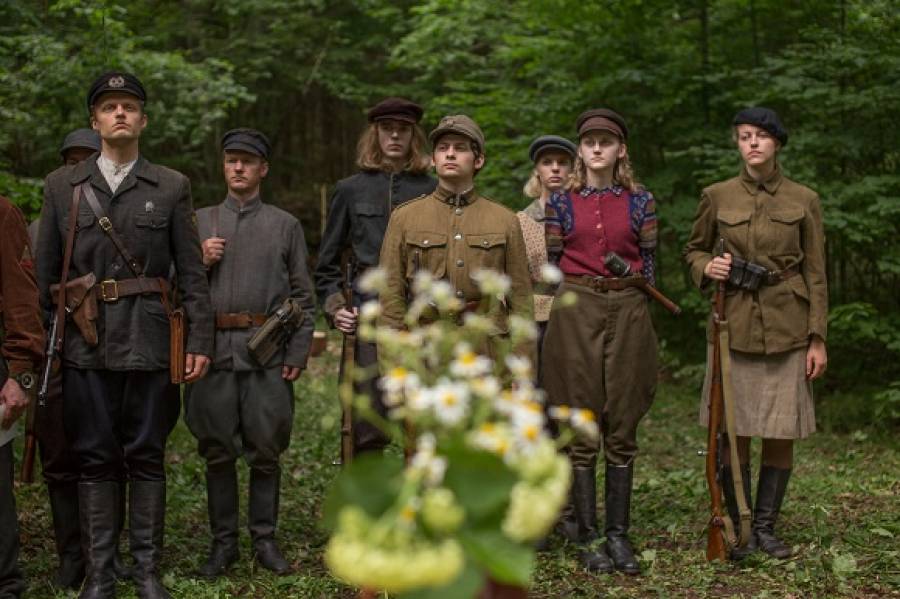


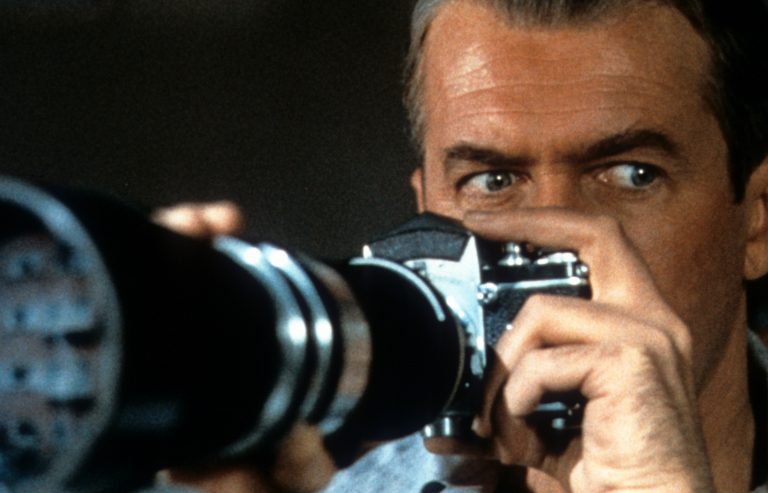
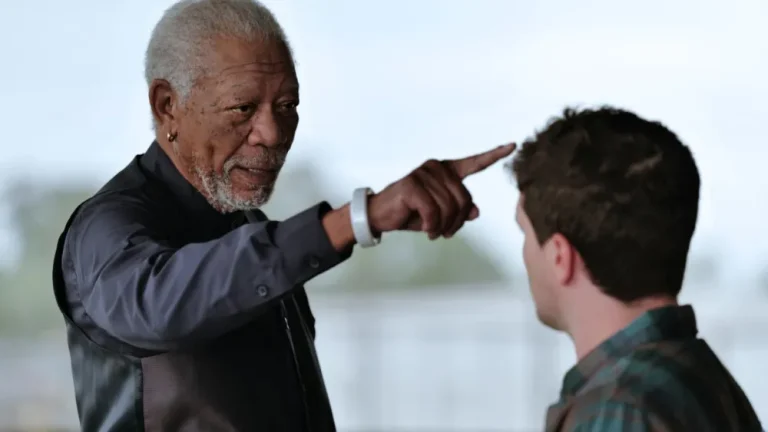
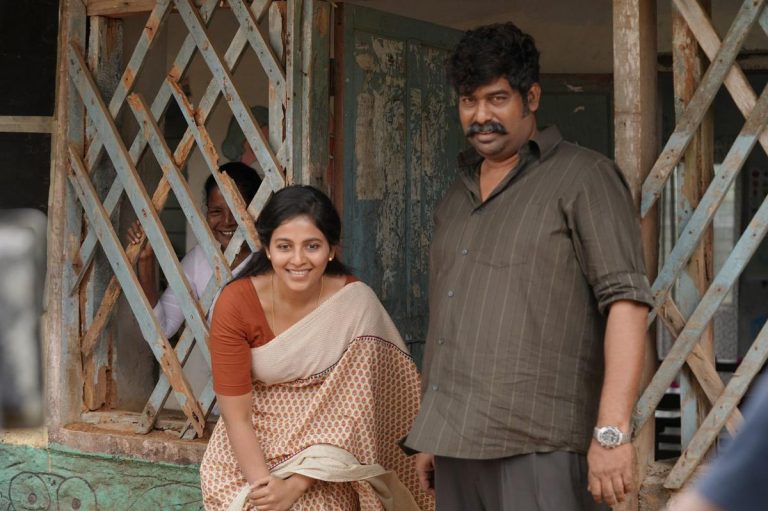
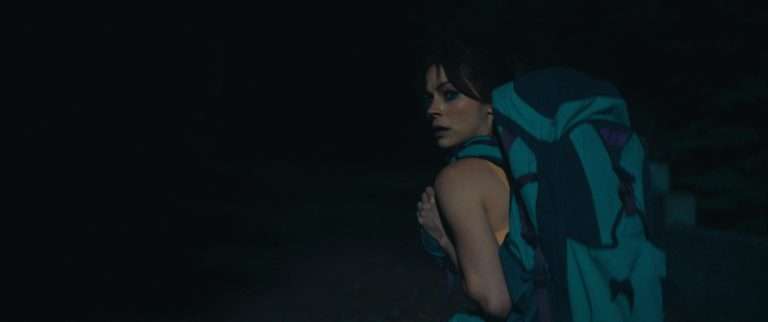
![Vikram [2022] Review: Summer Action-Extravaganza That Remains Consistently Engaging](https://79468c92.delivery.rocketcdn.me/wp-content/uploads/2022/06/Vikram-2022-768x512.jpg)
![India Sweets And Spices [2021]: ‘Tribeca’ Review – An Awful Film With Zero Insight on Indian American Community](https://79468c92.delivery.rocketcdn.me/wp-content/uploads/2021/06/India-Sweets-and-Spices-2-Tribeca-highonfilms-768x432.jpeg)